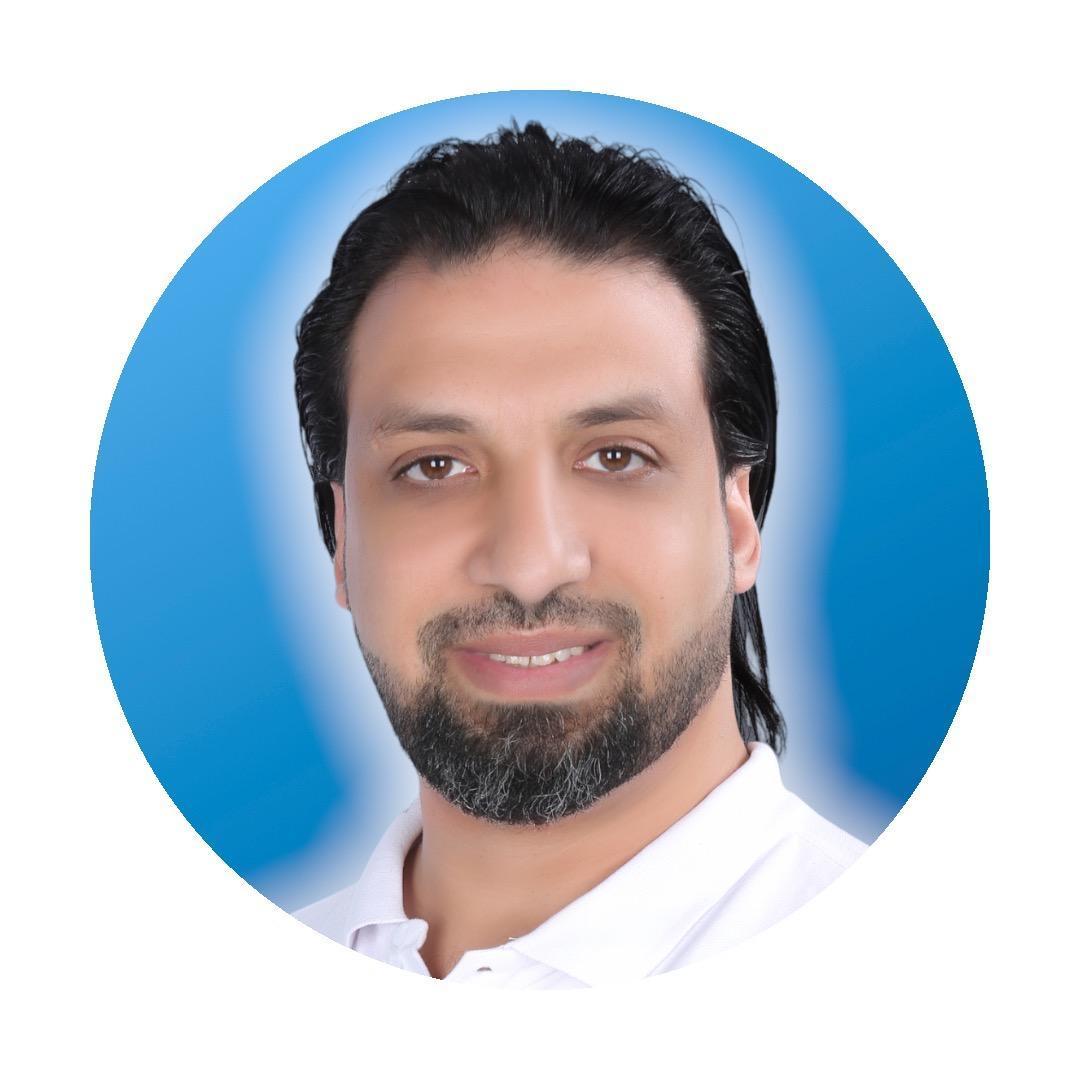Get connected with us on social networks:
The Middle East’s Next Tech Inflection Point
Why Advanced Technologies Are Opening Bigger Doors for Businesses in the GCC and Egypt
September 8, 2025 . 5 min
Across the GCC and Egypt, advanced technologies are moving from pilot projects to production at scale. What used to be “innovation theater” is now procurement line-items — AI copilots in operations, blockchain-backed compliance, IoT-led maintenance, and cloud-native ERPs running real businesses. This shift is powered by a rare combination: government-backed ecosystems, maturing venture capital, sector-focused incubators, and a generation of founders building region-first solutions.

Below is a practical tour of what’s changed — and how Neu Ocean is approaching the region with purposeful intent.
1) Why the timing is right
Gulf economies have elevated digital transformation to national strategy. Saudi Arabia’s National Strategy for Data & AI (NSDAI) puts data, skills, investment, and an enabling policy stack at the center of Vision 2030, creating a clear demand signal for AI-native products across public and private sectors.
At the same time, governments are professionalizing the capital stack behind startups and SMEs. Saudi Venture Capital Company (SVC) and PIF’s Jada Fund of Funds now anchor a deep pool of venture/PE vehicles backing technology scale-ups — an institutional backbone that didn’t exist at this depth five years ago.
Meanwhile, the UAE has consolidated a dense innovation corridor — Abu Dhabi’s Hub71, DIFC’s Innovation Hub & Dubai AI Campus, and the Mohammed Bin Rashid Innovation Fund (MBRIF) — which collectively offer equity-free acceleration, corporate access, and landing pads for global startups entering the market.
The result: tech adoption cycles are shortening, with regulators, funds, and corporates aligned around deploying advanced technologies in priority sectors such as financial services, logistics, healthcare, real estate, and government services.
2) Where to plug in: programs and incubators that matter
United Arab Emirates
- Hub71 (Abu Dhabi): A 12-month Access Programme with in-kind and cash incentives, plus sector tracks like Hub71+ Digital Assets for Web3 builders — ideal for startups needing regulated market entry and enterprise partnerships.
- Dubai Future Foundation (Area 2071 & Dubai Future Accelerators): A city-scale testbed that connects startups with public/private entities to solve predefined challenges — powerful for pilots with real customers.
- MBRIF (federal): An equity-free accelerator backed by the UAE government, providing bespoke, zero-fee support to scale high-potential innovators.
Saudi Arabia
- Monsha’at (SME Authority): Practical support for SME digital transformation — playbooks, services, and capability programs designed to modernize operations.
- NTDP & CODE (MCIT): Incentives, commercialization, and R&D localization programs that help tech firms build in-Kingdom (and hire/train local talent).
- Capital enablers: SVC (multi-stage financing via funds and direct investments) and Jada Fund of Funds (Vision 2030 vehicle catalyzing PE/VC depth) now routinely back funds that back builders.
Qatar
- Qatar Science & Technology Park (QSTP): Incubation with incorporation support, co-working, mentors, and a community engineered for RDI commercialization.
- QBIC & QDB: The Lean Startup Program and Startup Qatar Investment Program (up to $500k for launches; up to $5m for expansions) create a clear capital pathway for tech startups moving to Doha.
Bahrain
- Tamkeen (Labour Fund): Grants and enterprise programs that reduce the cost of adoption and hiring while tightening governance; newer initiatives include open-innovation tracks.
- Bahrain FinTech Bay: A fintech ecosystem builder running labs and accelerators (including Women in Tech with Standard Chartered) — useful for regulated pilots and sandboxing.
Oman
- ITHCA Group: The ICT arm of the Oman Investment Authority, investing in 4IR infrastructure and running initiatives like the new Scale Award to accelerate emerging tech companies under Vision 2040.
Kuwait
- National Fund for SME Development: A state vehicle providing training, services and financing for Kuwaiti entrepreneurs; the legal foundation (Law №98 of 2013) continues to frame national SME support.
Egypt
- ITIDA / TIEC (Start IT): Egypt’s flagship incubation program recently expanded support to EGP 480K per startup and enhanced cloud credits — timely relief for capital-efficient builders.
- AUC Venture Lab: A well-respected accelerator (plus sector tracks like FinTech with CIB) that readies teams for investment and connects them to corporate demand.
- Flat6Labs & Falak Startups: Long-standing platforms for acceleration and seed rounds, with recurrent programs across Egypt’s core verticals.
3) What this means for operators
The GCC dynamic: Government anchor clients are adopting AI, automation, and secure data platforms faster — and they often buy as “ecosystems” (policy + pilot + partners). If your product reduces compliance risk, cuts cycle time, or increases service quality, there is a path to lighthouse wins via accelerators/innovation labs tied to ministries, sovereign entities, and regulated industries.
The Egypt dynamic: With ITIDA/TIEC’s expanded backing and mature university-linked accelerators, Egypt remains a builder’s market — technically strong talent, cost advantages, and a growing cadre of local VCs/angels. The opportunity is to solve regional problems from an Egyptian engineering base and scale into GCC demand.
4) Neu Ocean’s approach to the Middle East and Egypt
At Neu Ocean Technologies, we’re entering and expanding across the region with a problem-first, compliance-forward playbook:
1. Two delivery models that respect data residency
- Jirlie Cloud (SaaS): end-to-end ERP/CRM/BI/AI stack hosted and governed by Neu Ocean — ideal for SMEs and mid-market entities wanting seamless onboarding.
- Jirlie Enterprise (hybrid): Neu Ocean hosts the framework and apps while client databases reside on the client’s private cloud or on-prem — a model aligned with GCC data sovereignty rules and large-enterprise preferences.
2. Arabic-first experiences, sector playbooks
We localize interfaces and workflows and maintain vertical templates for priority industries (real estate, public sector services, financial services, logistics). That shortens implementation windows and lets clients see value in weeks, not quarters.
3. Ecosystem partnerships over point deployments
We actively partner with Hub71, DIFC Innovation Hub, and MBRIF in the UAE for market access; in Saudi, we collaborate within the SVC/Jada-anchored venture fabric and NTDP/CODE corridors; in Egypt, we work with ITIDA/TIEC and university accelerators to co-develop modules and pilot with anchor customers. This approach aligns product roadmaps with policy and procurement realities from day one.
4. AI you can audit
Our Jirlie framework emphasizes traceable AI (auditable data lineage, human-in-the-loop controls, and clear authorization policies). That’s essential in regulated environments shaped by NSDAI in KSA and data governance across the GCC.
5. Value realization playbooks
We enter with measurable KPIs — time-to-quote, case-resolution SLAs, procurement cycle time, forecast accuracy — so that CFOs and Chiefs of Staff can defend the ROI internally.
The infrastructure and incentives are finally aligned — from Abu Dhabi’s landing pads to Riyadh’s venture depth, Doha’s funding escalators, Manama’s grants, Muscat’s 4IR push, Kuwait’s SME framework, and Cairo’s builder base. This is the window for startup or SME in the GCC or Egypt to professionalize their tech core: consolidate systems, instrument their data, and deploy AI where it moves P&L.
Neu Ocean is ready to co-build with you in this environment — deploying Jirlie where it measurably matters, and partnering with the region’s most effective accelerators and agencies to turn pilots into production.

Chief Executive Officer, Neu Ocean Technologies Ltd,
Ex-managing director & projects director with a wide track record of managerial, technical, consultancy, advisory and supervisory activities in various business and professional fields.